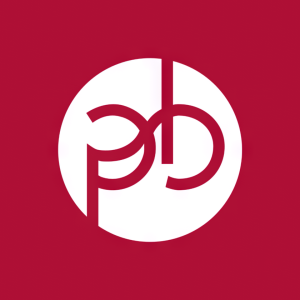Welcome to our dedicated page for Pacific Biosc news (Ticker: PACB), a resource for investors and traders seeking the latest updates and insights on Pacific Biosc stock.
Pacific Biosciences of California (NASDAQ: PACB) delivers innovative genomic sequencing solutions through its advanced HiFi and SBB® technologies. This news hub provides investors and researchers with comprehensive access to corporate developments and scientific advancements driving the future of precision medicine.
Track official press releases, financial disclosures, and operational updates from this biotechnology leader. Our curated collection includes earnings reports, partnership announcements, regulatory milestones, and peer-reviewed research findings utilizing PACB sequencing platforms.
Key updates cover product launches, clinical study results, patent filings, and strategic collaborations across academic institutions and healthcare organizations. Stay informed about developments in long-read sequencing applications for oncology, rare disease research, and microbial genomics.
Bookmark this page for streamlined access to PACB's latest progress in overcoming complex genomic challenges. Check regularly for verified updates on technological innovations and market expansion efforts in the dynamic life sciences sector.
PacBio (NASDAQ: PACB) announced SPRQ-Nx chemistry and consumables for Revio and Vega to reduce HiFi genome sequencing costs and add multiomic and regulated‑lab features. PacBio says customers at scale could see up to a 40% cost reduction, bringing per‑genome costs to under $300, with beta testing on Revio beginning November 2025 and commercial availability in 2026. Beta participants can purchase 384 genomes of reagents at about $250 per genome.
Other upgrades include 5hmC epigenetic detection, faster Vega runs (2–4 hours), 21 CFR Part 11 authentication and audit logging, and long‑term support for Revio and Vega through 2032.
PacBio (NASDAQ:PACB) announced on October 13, 2025 that its HiFi sequencing technology was selected as the primary platform for the Korean Pangenome Reference Project led by KDCA/KNIH.
The program aims to generate >1,000 telomere-to-telomere quality reference genomes representing the Korean population, integrate data into the global Human Pangenome Reference Consortium, and accelerate discovery of population-specific variants to support precision diagnostics, therapeutics, and disease research.
PacBio will provide HiFi whole-genome sequencing, full-length RNA analysis, and chromosome-scale CiFi technology as an integrated solution.
PacBio (NASDAQ: PACB) will sequence up to 7,800 whole genomes and epigenomes from the National Institute on Aging's Long Life Family Study using its Revio system and HiFi long‑read, methylation‑aware protocols. The program begins in Q4 2025 at the McDonnell Genome Institute with an initial tranche of ~5,500 samples and is planned to span five years. The LLFS renewal includes $80 million in NIA funding (2U19AG063893-06) for sequencing and recruitment. Goals include detecting structural variants, methylation signatures, and integrating genomics with longitudinal phenotypes to study exceptional longevity.
PacBio (NASDAQ: PACB) expanded its partnership with seqWell to distribute the LongPlex™ Multiplexing Kit, a scalable sample-prep solution optimized for PacBio HiFi sequencing. The kit uses tagmentation to fragment and index DNA, supporting multiplexing of up to hundreds of samples per run and workflows including low-pass whole genome sequencing, plasmid resequencing, and microbial sequencing. The LongPlex kit is available now with global availability in 2026, and is positioned to reduce hands-on time and cost per sample for high-throughput projects.
PacBio (NASDAQ: PACB) has announced its strategic entry into the high-throughput carrier screening market with an enhanced suite of PureTarget products. The new solution leverages HiFi sequencing technology to consolidate multiple specialized assays into a single, scalable test for analyzing challenging genes associated with inherited conditions.
The expanded portfolio includes three configurations: a carrier screening panel for inherited reproductive conditions, a repeat expansion disorder panel for neurological diseases, and a control panel for custom assay design. The solution can process up to 100,000 samples per year on a single Revio system and covers all challenging tier 3 genes identified in the American College of Medical Genetics technical standard.
PacBio (NASDAQ: PACB) has announced a strategic partnership with EpiCypher through the PacBio Compatible program. The collaboration introduces EpiCypher's CUTANA® Hia5 enzyme for use with Fiber-seq assays on PacBio HiFi sequencing systems.
The partnership enables a novel multi-omic whole genome sequencing approach that simultaneously measures chromatin accessibility, DNA methylation, and DNA variation on individual DNA molecules. This advancement allows researchers to better understand gene regulation and its impact on human health, particularly in rare disease research.
The CUTANA Hia5 enzyme is now commercially available in 8 and 24 reaction formats, offering researchers the ability to consolidate multiple assays into one workflow while delivering more comprehensive data.
PacBio (NASDAQ: PACB) reported Q2 2025 financial results with total revenue of $39.8 million, up from $36.0 million in Q2 2024. The quarter showed mixed performance with 15 Revio™ and 38 Vega™ systems placed. Revenue breakdown included $14.2 million from instruments, $18.9 million from consumables, and $6.7 million from service and other revenue.
The company reported a GAAP net loss of $41.9 million ($0.14 per share) compared to $173.3 million ($0.64 per share) in Q2 2024. Non-GAAP net loss improved to $40.0 million ($0.13 per share). Cash position stood at $314.7 million. Notable achievements included publishing the Platinum Pedigree benchmark in Nature Methods and expanding distribution in China through Haorui Gene.
PacBio (NASDAQ: PACB), a developer of high-quality sequencing solutions, has announced its participation in two upcoming investor conferences. Management will present at the Canaccord Genuity 45th Annual Growth Conference on August 12, 2025, at 2:30 PM ET in Boston, and the Morgan Stanley 23rd Annual Global Healthcare Conference on September 10, 2025, at 12:20 PM ET in New York.
Investors can access live webcasts of both presentations through PacBio's investor relations website, with replays available for at least 30 days after each event.
PacBio (NASDAQ: PACB) announced the publication of a groundbreaking study in Nature Methods introducing the Platinum Pedigree benchmark, a comprehensive truth-set of genomic variation. The study, conducted in collaboration with multiple institutions, utilized deep sequencing across a 28-member multi-generational family to create the most complete view of validated genetic variation to date.
The benchmark successfully catalogs over 37 Mb of genetic variation and adds more than 200 million bases, extending benchmark regions to 2.77 Gb. When used to retrain Google's DeepVariant AI tool, it achieved a 34% reduction in erroneously called variants. The dataset is freely available and includes the first large pedigree-validated tandem repeat and structural variant truth sets.
Quest Diagnostics (NYSE: DGX) subsidiary Athena Diagnostics has launched a new laboratory test service for improved genetic testing of ataxia, a group of degenerative neurological disorders affecting movement and coordination. The test, developed in collaboration with PacBio (NASDAQ: PACB), utilizes PacBio's PureTarget sequencing method to identify long DNA repeat sequences that conventional testing might miss.
The new test will serve as a confirmatory tool following initial PCR screening, with testing conducted at Athena's Marlborough laboratory. A preprint study demonstrated the test's ability to identify specific gene patterns in Spinocerebellar ataxia type 10, potentially helping predict disease onset. Recent studies indicate ataxia affects 26 per 100,000 children, with genetic causes accounting for 10 per 100,000 cases.


